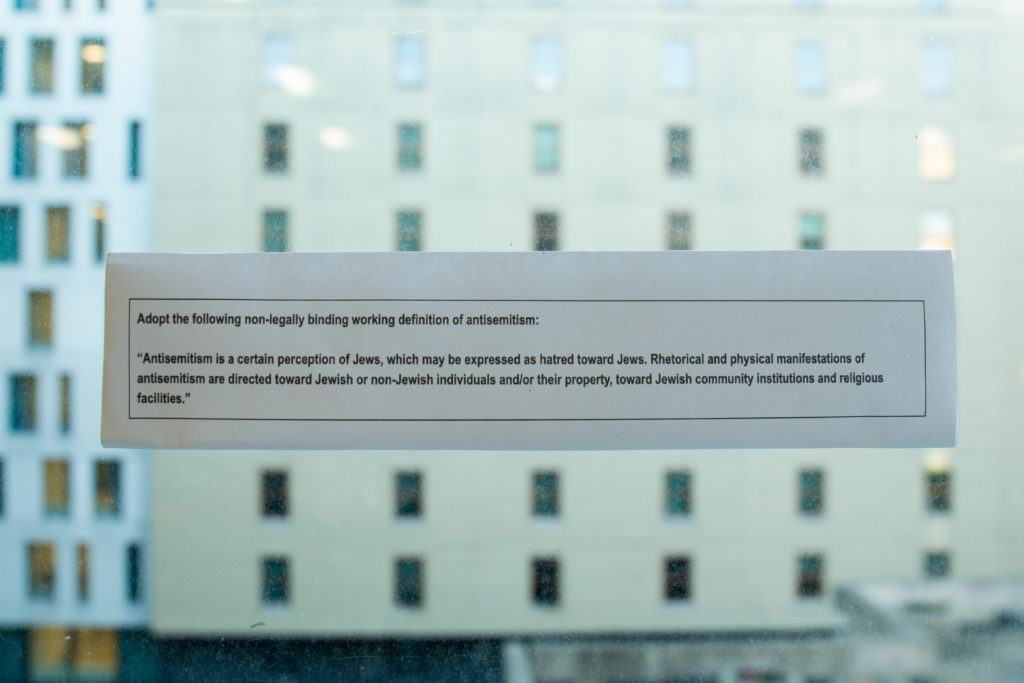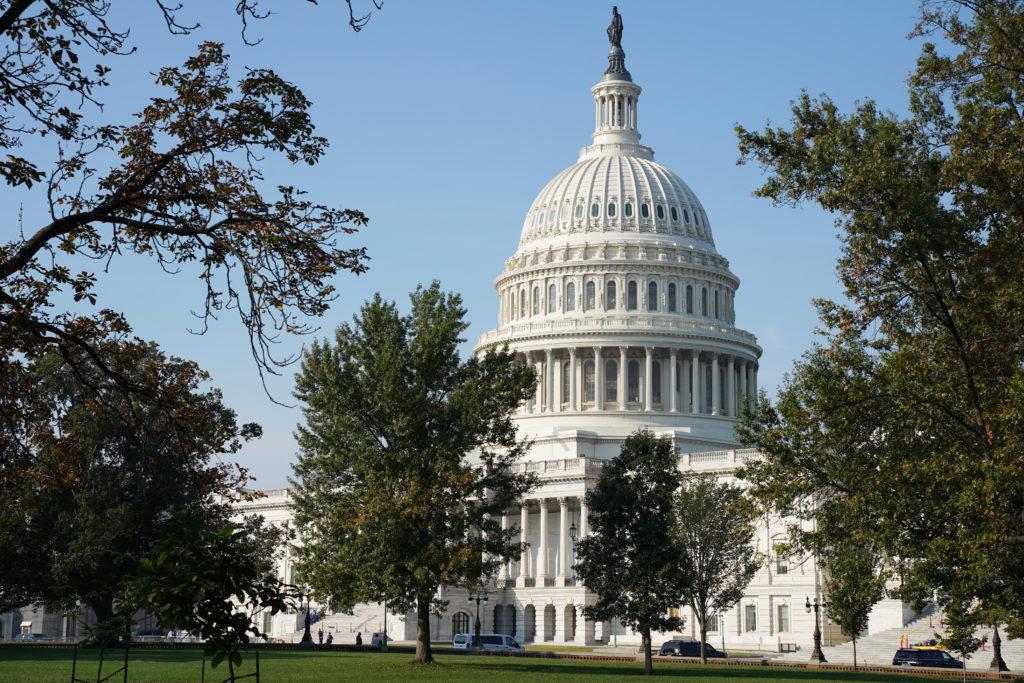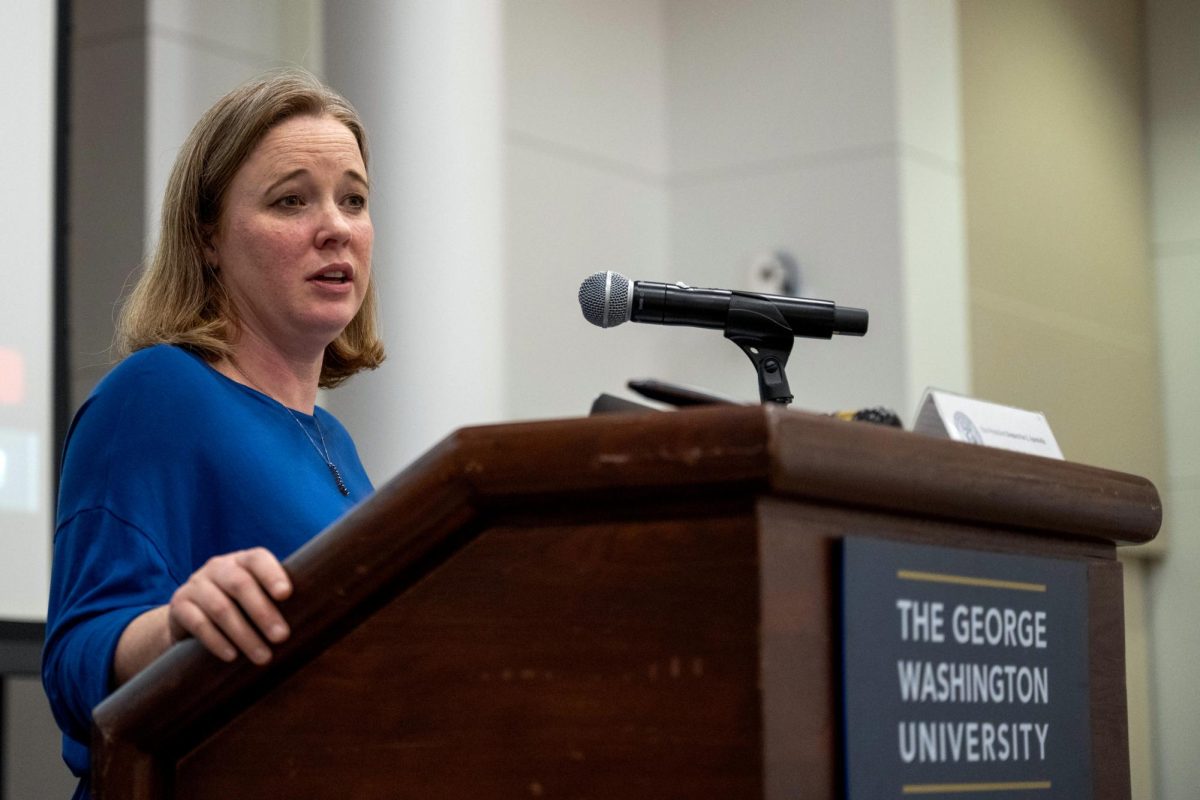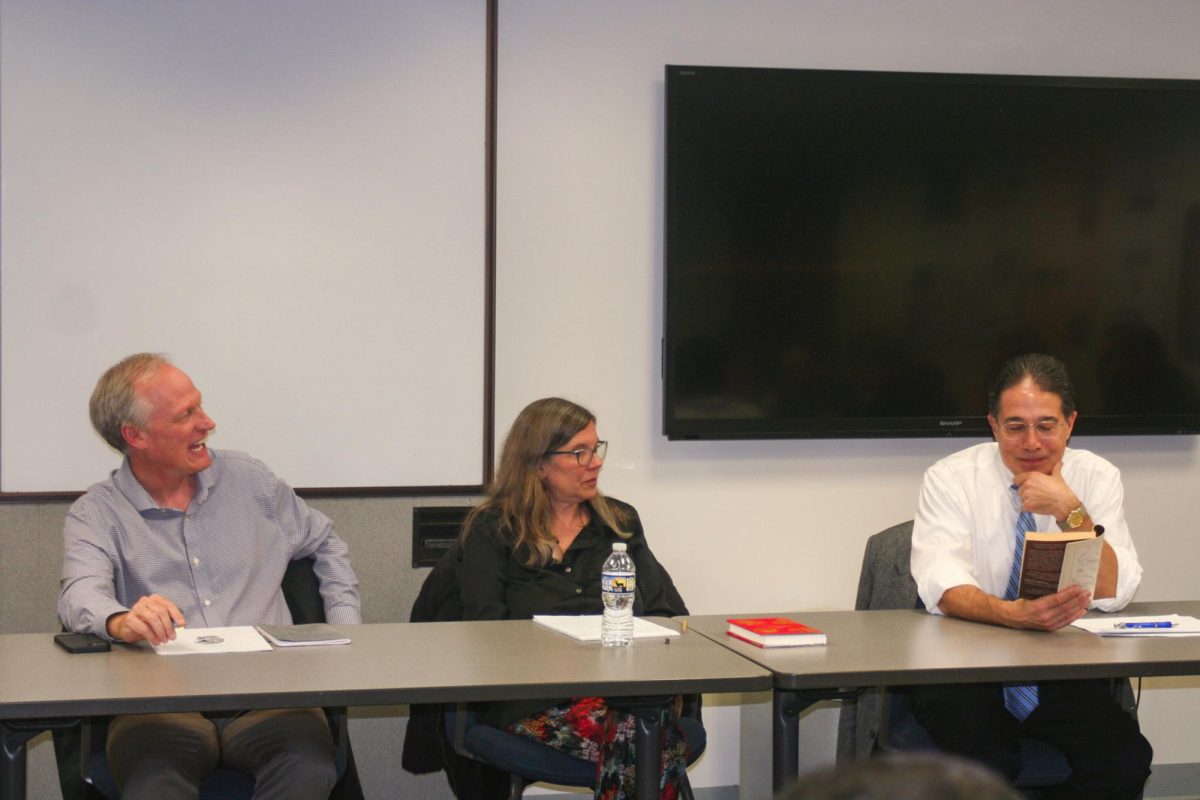Updated: March 30, 2023, at 4:02 p.m.
Foggy Bottom has become the local arena of an international debate over the definition of antisemitism – or whether a specific definition should exist at all.
Dozens of universities have adopted the International Holocaust Remembrance Alliance’s definition of antisemitism, which refers to antisemitism as a perception of or expressed hatred toward “Jewish or non-Jewish individuals and/or their property, toward Jewish community institutions and religious facilities.” The definition is a framework for political, professional and higher education institutions to determine whether discriminatory incidents are antisemitic with a standardized definition and 11 examples of antisemitic acts.
While the reach of the definition is expanding, the spread isn’t without controversy. Supporters of the definition laud it as an approach to standardize a method of identifying discrimination, but critics said they’re concerned the definition could be used to improperly prohibit rhetoric critical of the state of Israel by characterizing critiques of the Israeli government as antisemitic, and note no other form of discrimination has a universal definition.
The definition isn’t just reaching college campuses. Former President Donald Trump signed a 2019 executive order asking government agencies to consider implementing IHRA’s definition and Secretary of State Antony Blinken wrote a letter saying President Joe Biden’s administration “enthusiastically embraces” the definition.
Federal agencies like the Department of Education and the Department of State have adopted the definition as well as 31 of the 50 U.S. states.
“We are eager to work with allies and partners to counter Holocaust distortion and combat antisemitism and other forms of intolerance abroad while we strengthen our efforts at home, including redoubling our efforts to counter violent extremism,” Blinken said in the letter.
Amid colliding calls for officials to address alleged acts of anti-Israeli and anti-Palestinian discrimination on campus, contention over the definition of antisemitism sits at the epicenter of the debate. Within the past three months, a pair of pro-Israel and pro-Palestine advocacy organizations have filed federal civil rights complaints against the University, asking officials to install the definition in one case and reject its premise in another.
Pro-Israel nonprofit StandWithUs filed a Title VI complaint with the Department of Education in January alleging an assistant professor of clinical psychology was antisemitic toward Jewish and Israeli students in a graduate-level psychology course last fall. In its complaint, StandWithUs demanded the University adopt the IHRA definition to halt further acts of campus discrimination.
Palestinian advocacy organization Palestine Legal filed a civil rights complaint with the Department of Education last month calling on the D.C. Office of Civil Rights to investigate a “years-long, hostile environment of anti-Palestinian racism” at GW. Following a push from StandWithUs to adopt the IHRA definition months prior, the complaint contested GW’s potential adoption of IHRA’s definition could result in nationality-based discrimination against Palestinians on campus by possibly limiting criticism against the state of Israel.
University spokesperson Julia Metjian did not return a request to comment.
Carly Gammill, the director of the StandWithUs Center for Combating Antisemitism, said the IHRA definition acts as a “crucial” tool in identifying antisemitism as the targeting of the Jewish religion, ethnicity or the “Jewish state of Israel,” especially on college campuses. She said the definition helps students, administrators and other campus figures identify antisemitic incidents and distinguish them from legitimate criticism of Israeli government and politics.
Gammill said the IHRA definition is not legally binding and doesn’t include any enforcement process. She said it instead acts as a tool for “education and identification” but does not administer censorship, restrictions or punishment.
“Any concerns about academic freedom, free speech and other rights as they pertain to the IHRA definition are easily addressed in the text of the IHRA definition,” Gammill said in an email. “We are hopeful that GWU will join the growing number of educational institutions using the IHRA definition to help address rising antisemitism on our nation’s campuses.”
Radhika Sainath, a senior staff attorney for Palestine Legal, said the legal group does not support the adoption of the IHRA definition because it could stifle criticism against the Israeli government and its alleged violence toward Palestinians, which could lead to anti-Palestinian discrimination and infringe on free speech. She said the definition introduces a “double standard” where people are prohibited from criticizing Israel but free to criticize other states and governments.
“People, again, should be able to freely criticize states and governments, and the state of Israel should not be singled out for a special exception to be free from criticism,” she said during an interview.
The IHRA definition considers “claiming that the existence of a State of Israel is a racist endeavor” as antisemitic, as well as the general denial of Jewish people to their right to self-determination. The definition distinguishes these expressions of speech from other forms of criticism against Israel.
“Manifestations might include the targeting of the state of Israel, conceived as a Jewish collectivity,” the definition states. “However, criticism of Israel similar to that leveled against any other country cannot be regarded as antisemitic.”
Sainath said Palestine Legal does not believe there should be “codified” definitions of discrimination, including for antisemitism, because no other forms of discrimination are concretely defined.
She said one of Palestine Legal’s clients is a Palestinian GW student who was allegedly shot by an Israeli soldier at a checkpoint in the West Bank in 2021 while she was taking University classes remotely. She said adopting the definition would condemn her story as an antisemitic, “one-sided criticism of Israel.”
“We believe that should GW, or any other university, apply the IHRA definition of antisemitism, it could lead administrators into a morass of national origin-based discrimination in violation of the law,” she said.
Sophomore Sabrina Soffer, the SA’s commissioner of the task force to combat antisemitism, said she “supports” the IHRA definition because it “succinctly” addresses all forms of antisemitism. She said the definition will help guide the task force’s discussion but she feels not enough students understand and agree on the nuances of Israel’s history well enough to implement the definition as a University-wide policy.
“I think it’s very pointed, and I think it’s very effective,” she said. “But I think that we can’t just implement something without people knowing what’s really behind it.”
Adena Kirstein, the executive director of GW Hillel, said Hillel appreciates members of the GW community committing themselves to thinking critically about antisemitism and how to combat it on campus. She said continuing to cultivate this education about how to address antisemitism across the University is vital to ensuring a safe environment for Jewish students.
Kirstein declined to comment on whether she hopes to see the University adopt the IHRA definition.
“When antisemitic incidents take place, Jewish students can sometimes feel they must suppress their Jewish identities to fully participate and belong in classrooms, student organizations and other campus spaces,” Kirstein said in an email. “Jewish students, like all students, should be able to freely own, grapple with and express their identities.”
Sophomore Gabe Friedman, a coordinating committee member for Jewish Voice for Peace, a Jewish student organization supporting the rights and liberation of Palestinians, said IHRA’s definition is a “flimsy” definition of antisemitism. He said penalizing rhetoric that criticizes the state of Israel “denies a fundamental reality” for many Palestinians, whom Israeli forces have forced from homes and perpetrated violence against.
“Right off the bat, it has a fundamental conflation between the opposition to the nation state of Israel – which is a sovereign nation state – with animosity toward Jewish people, which at the University level does not do anything to protect Jewish students, but does everything to prevent Palestinian students from speaking out against the oppression that their family experienced,” he said.
This post has been updated to correct the following:
The Hatchet incorrectly reported that the Student Code of Conduct does not explicitly define what constitutes as discrimination. The Code of Conduct offers two definitions for discrimination — prohibited discrimination and discriminatory harassment. Prohibited discrimination is defined as “the adverse treatment of an individual or group(s) based on a protected characteristic, rather than individual merit that interferes with an individual’s participation in a university program or activity,” and discriminatory harassment is considered “any unwelcome conduct based on a protected characteristic where such conduct creates a hostile environment.” We regret this error.
The Hatchet also incorrectly reported that the three of GW’s peer schools adopted the definition. The student governments at those schools adopted the definition, but not the universities themselves. We regret this error.
The Hatchet also incorrectly reported Gammill’s title to be the director of StandWithUs. She is the director of the StandWithUs Center for Combating Antisemitism. The Hatchet also twice referred to StandWithUs as StandWithUS. We regret this error.











